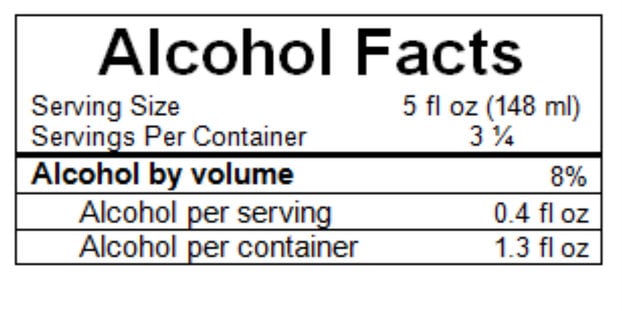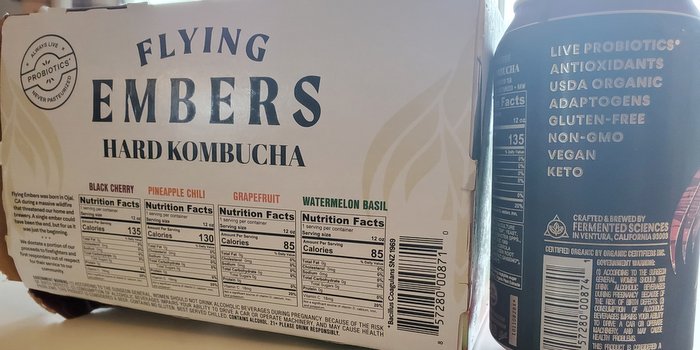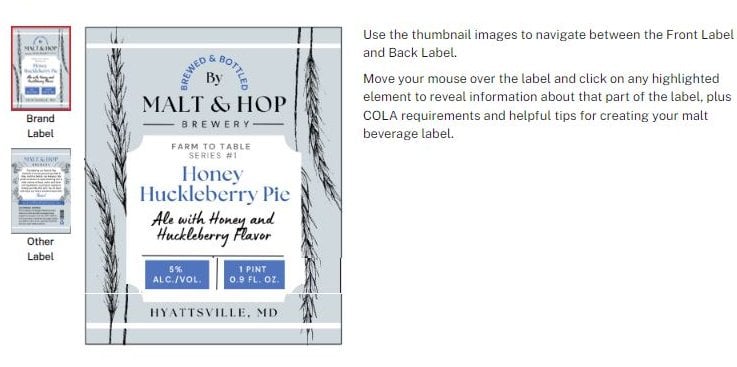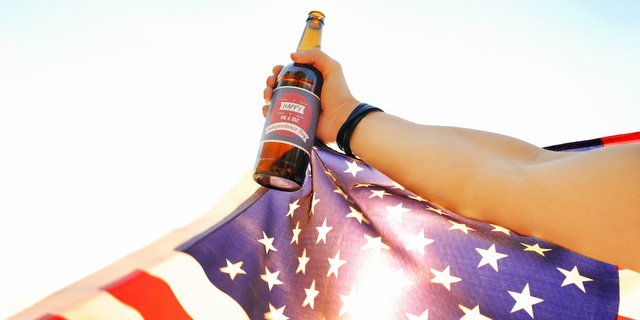
Flying Embers sent us some tasty hard kombuchas the other day (along with some seltzer). This came after receiving some non-alcohol IPAs from Oregon-based Crux Fermentation and some hop-infused water from Hoplark. While I am mourning the days of getting actual beer sent to our doorstep, these flavored alcohol and near-beer innovations are winning me over. They aren’t replacing my desire for a beer, but they are carving out their own niches. Their most powerful lesson, though, is a reminder that labeling matters.
The Flying Embers kombucha, for example, has 0 Sugar, 0 Carbs printed bottom center right under the name (and just under the still very important 7.2 percent ABV). It also has “antioxidants, USDA organic, adaptogens, gluten-free, vegan, keto” printed prominently near the nutrition facts. I don’t necessarily care about all of those, but they are all certainly influencing me, making me feel better about my choice (and perhaps encourage me?) to crack one open instead of a beer — heck, when drinking wasn’t even on my mind.

Are you producing anything low-cal, low-carb, low sugar that could have a similar angel on the shoulder effect?
If you’re not, you should be, and if you are, be sure to understand the right and wrong ways to label and promote it. The Alcohol and Tobacco Tax and Trade Bureau (TTB) reminds that specific calorie or carbohydrate statements on labels and in advertisements needs to be accurate — and they need to include more than just the one number you want to promote.
“We consider these declarations to be misleading (and thus prohibited) unless they include a statement that lists the number of calories and the number of grams of carbohydrates, protein, and fat contained in the product based on a single serving.”
You have two different options for doing this under TTB guidelines: a “statement of average analysis” and a “Serving Facts statement.”
If you want to say on your label or in your advertising that your product is low in carbohydrates, under TTB Ruling 2004-1, your product must contain no more than 7 grams of carbohydrates per serving. Also, as described in TTB Ruling 2013-2, the label or advertisement must contain either a statement of average analysis or a Serving Facts statement.
TTB considers the use of terms such as “net carbohydrates” and “effective carbohydrates” on labels and in advertisements as misleading to consumers.
If a serving of your alcohol beverage contains less than 0.5 grams of sugar, you may include a claim such as “Zero Sugar,” “No Sugar,” or “Sugar Free” on your label or in your advertisement. The label or advertisement must also include a statement of average analysis or a Serving Facts statement.





Leave a Reply
You must be logged in to post a comment.